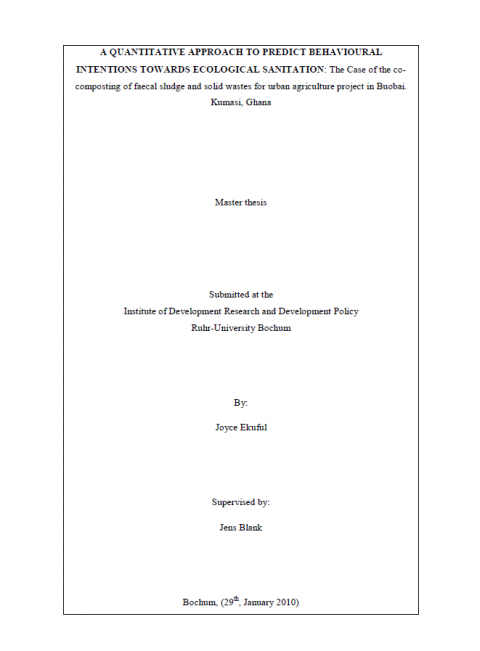A quantitative approach to predict behavioural intentions towards ecological sanitation The case of the co-composting of faecal sludge and solid wastes for urban agriculture project in Buobai/Kumasi, Ghana Ekuful, J. (2010)
Bibliographic information
Ekuful, J. (2010). A quantitative approach to predict behavioural intentions towards ecological sanitation The case of the co-composting of faecal sludge and solid wastes for urban agriculture project in Buobai/Kumasi, Ghana
Filter / Tags
Composting, vermicomposting (solid waste), composting toiletsFaecal sludge treatment processesFaeces or faecal sludgePeri-urbanUrban (entire city)English
Downloads
A quantitative approach to predict behavioural intentions towards ecological sanitation
Type: application/pdf
Size: 3.58 MB

